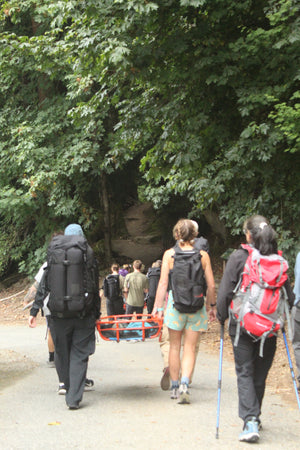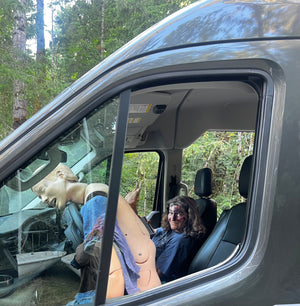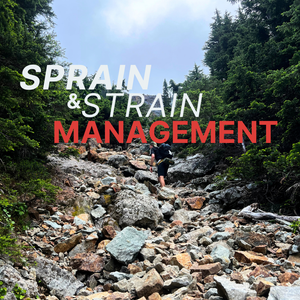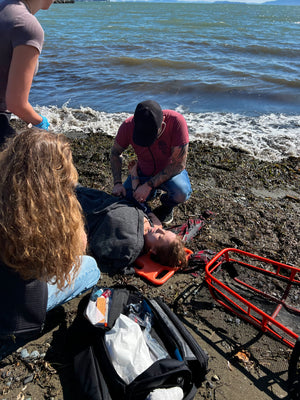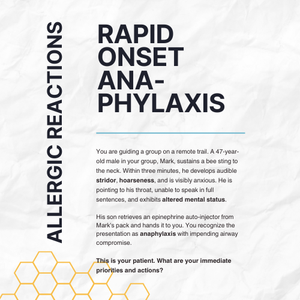WFR Hybrid Learning Experience
Integrating Flexible Online Learning with an Intensive Practical Skills Week
By structuring the course into two distinct phases—a comprehensive online component for foundational knowledge and a mandatory 5-day in-person practical—this model provides unparalleled flexibility without compromising the hands-on mastery required for wilderness medicine.
Phase 1: Online Self-Guided Study (4 Weeks, 20-30 Hours)
This phase builds the crucial cognitive foundation. Students engage with the complete WFR curriculum from home, on their own schedule. This is a structured, instructor-monitored experience:
Flexible Learning: Students complete modules, readings, and practical assignments like SOAP notes and case studies at their own pace within a weekly framework.
Instructor Support: Weekly live Zoom meetings allow students to review concepts with an instructor, ask questions, and connect with their cohort.
Knowledge Validation: Seven online exams, requiring an 80% passing score, ensure every student has mastered the theoretical material before moving on to the practical phase.
Phase 2: In-Person Practical Training (5 Days)
Students convene for five intensive days (8:00 AM - 5:00 PM) of hands-on training. This is where theory becomes action.
Skill Mastery: Days are packed with short, reinforcing lectures followed by extensive skill labs focusing on patient assessment, wound management, splinting, and patient packaging.
High-Fidelity Scenarios: Students are put to the test in complex, evolving simulations that replicate the stress and uncertainty of a real wilderness emergency.
The Night Scenario: A multi-hour evening scenario challenges students to manage a scene with the added difficulty of darkness, testing their skills and leadership under pressure.
Final Validation: A final practical exam on the last day requires students to demonstrate their competence and clinical decision-making, ensuring they are ready for the field.
Curriculum and Outcomes: No Compromises
The Hybrid WFR curriculum covers the identical scope of practice as the immersive course. The delivery is different, but the standards are the same. Graduates will be fully equipped to manage trauma, medical emergencies, and environmental threats in a remote setting. They will emerge with a recognized WFR certification, having proven their competence in both written and practical examinations.
The Ideal Hybrid WFR Candidate
This format is engineered for the disciplined, self-motivated individual who requires a flexible training solution. It is ideal for:
Professionals with full-time jobs who cannot take 8-9 consecutive days off.
University students, parents, or individuals with complex schedules.
Those who prefer to learn theoretical concepts at their own pace in a quiet environment before engaging in hands-on group activities.
The Hybrid WFR program is the modern answer to comprehensive wilderness medical training. It respects the student's time and commitments while rigorously enforcing the practical skill mastery that lies at the heart of the WFR certification. It proves that flexibility and quality are not mutually exclusive, producing graduates who are knowledgeable, practiced, and prepared to respond effectively when it matters most.
